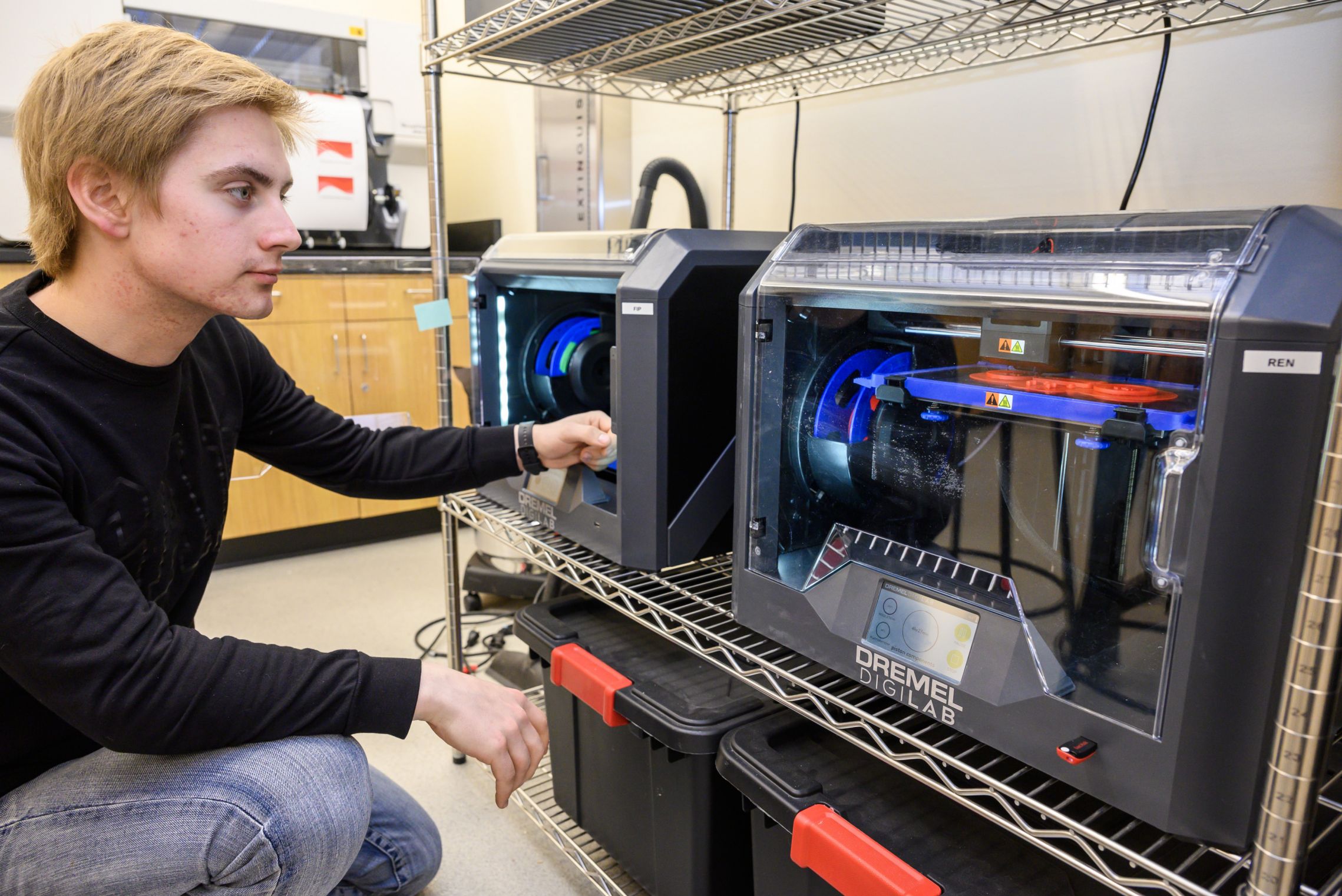Engineering Accreditation
The Bachelor of Science in Engineering has been designed to meet the Engineering Accreditation Commision (EAC) Accreditation Board for Engineering and Technology (ABET) Student Learning Outcomes. The Bachelor of Arts in Engineering is an applied science degree and has not been designed to meet the EAC-ABET standards. The Bachelor of Science in Engineering is not eligible for ABET accreditation until after the first graduates have graduated from the program.
Engineering Program Mission Statement
Our mission mirrors that of Carthage College: Seeking Truth, Building Strength, Inspiring Service – Together, defining each challenge as a challenge within the context of Engineering for all our graduates:
- Seeking Truth: We act responsibly and ethically, adhering to codes, standards, and established knowledge while holding paramount the safety, health, and welfare of the public.
- Building Strength: We act as innovators, understanding and building from tradition while having the courage to seek new solutions for tomorrow’s challenges.
- Inspiring Service: We act to better our surroundings and society while protecting resources and the needs of future generations.
- Together: We act as honorable collaborators, respecting others and forgiving easily to bring out the best in our communities.
Engineering Program Values
As a community of learners, the Carthage Engineering Department values:
- Community: We support and respect one another.
- Curiosity: We are driven to learn and discover.
- Ingenuity: We connect ideas to blaze new trails.
- Integrity: We live honestly and ethically.
- Sustainability: We design for future generations.
- Tenacity: We pursue knowledge, truth, and understanding.
Program Educational Objectives
Within 3-5 years of graduation, alumni of Carthage Engineering will establish themselves as professionals who:
- Identify opportunities, evaluate risks, and balance competing objectives to develop sustainable solutions that add new value and consider the needs of future generations.
- Are well-versed in solving a large range of technical problems across engineering disciplines.
- Work constructively and ethically as a member of diverse teams among professional and community organizations.
- Hear, respect, and communicate ideas, technical information, and proposals effectively across a variety of audiences.
- Are positioned for future success as leaders in a chosen career path through demonstrated ownership of personal growth and development.
Bachelor of Science in Engineering Student Learning Outcomes
Upon graduation, Carthage Bachelor of Science in Engineering students will have acquired the knowledge, skills, and behaviors required:
- To identify, formulate, and solve complex engineering problems by applying principles of engineering, science, and mathematics.
- To apply engineering design to produce solutions that meet specified needs with consideration of public health, safety, and welfare, as well as global, cultural, social, environmental, and economic factors.
- To communicate effectively with a range of audiences.
- To recognize ethical and professional responsibilities in engineering situations and make informed judgments, which must consider the impact of engineering solutions in global, economic, environmental, and societal contexts.
- To function effectively on a team whose members together provide leadership, create a collaborative and inclusive environment, establish goals, plan tasks, and meet objectives.
- To develop and conduct appropriate experimentation, analyze and interpret data, and use engineering judgment to draw conclusions.
- To acquire and apply new knowledge as needed, using appropriate learning strategies.
Bachelor of Arts in Engineering Student Learning Outcomes
Upon graduation, Carthage College Bachelor of Arts in Engineering students will have acquired the knowledge, skills, and behaviors required:
- To identify, formulate, and solve broadly-defined technical or scientific problems by applying knowledge of mathematics and science and/or technical topics to areas relevant to the discipline.
- To formulate or design a system, process, procedure, or program to meet desired needs.
- To develop and conduct experiments or test hypotheses, analyze and interpret data and use scientific judgment to draw conclusions.
- To communicate effectively with a range of audiences.
- To understand ethical and professional responsibilities and the impact of technical and/or scientific solutions in global, economic, environmental, and societal contexts.
- To function effectively on teams that establish goals, plan tasks, meet deadlines, and analyze risk and uncertainty.

